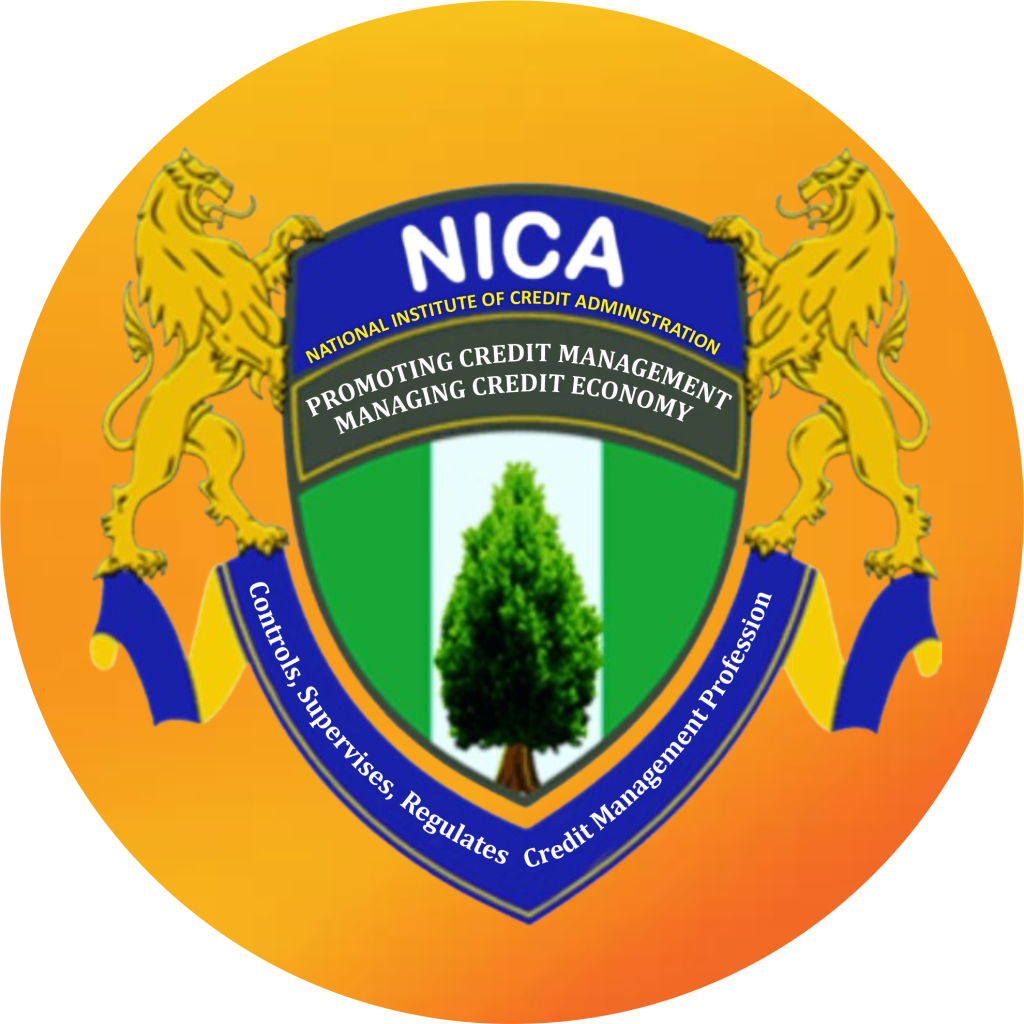Multinationals, financial institutions, others not supporting MSMEs enough – NICA

National Institute of Credit Administration NICA
The National Institute of Credit Administration (NICA) chartered, has expressed concern over the inadequate support that Micro, Small, and Medium Enterprises (MSMEs) receive from multinational corporations, financial institutions, and other key stakeholders in the Nigerian economy. Despite their critical role in driving economic growth, job creation, and national development, MSMEs continue to struggle with limited access to credit, unfavourable lending conditions, and insufficient financial backing from major players in the business and financial sectors.
As Nigeria transitions towards a more credit-driven economy, the survival and expansion of MSMEs are increasingly dependent on the willingness of the government, financial institutions, and big corporate entities to create an enabling environment. Banks’ long-standing reluctance to offer flexible loan options and stringent collateral requirements and multinational corporations and other big business conglomerates’ general apathy toward integrating MSMEs into their value chains have significantly stifled small businesses’ growth potential in Nigeria.
According to recent economic reports, MSMEs contribute over 50% of Nigeria’s Gross Domestic Product (GDP) and account for more than 80% of employment opportunities. However, they continue to face significant challenges, including unfair treatment by larger businesses, limited access to structured credit, delayed invoice payments, and insufficient patronage from banks, multinational corporations, and large enterprises. These obstacles hinder their ability to scale and compete effectively in both local and international markets.
Lack of Patronage
Beyond credit access, financial institutions, multinational corporations, and other large conglomerates also fail to support MSMEs by patronising their businesses. Rather than engaging MSMEs for procurement and service contracts, they prefer dealing with large corporations or those owned by insiders in top management positions. This practice deprives MSMEs of essential business opportunities and stifles competition in the economy. The federal government is advised to put legislation in place to check this trend.
A thriving MSME sector depends not only on credit availability and accessibility but also on business opportunities. When banks and multinationals overlook small businesses in their supply chains, they inadvertently contribute to the sector’s stagnation. NICA calls for a policy framework in this regard.
Delayed Settlements of MSMEs’ Invoices
Even in cases where large corporations and financial institutions engage MSMEs, invoice settlement delays of 30, 60, or even 90 days are commonplace, an internal payment policy that appears detrimental to the growth of small businesses. MSMEs rely on prompt settlements of their invoices to maintain cash flow and operational stability. Delayed settlements can lead to liquidity challenges, making it difficult for small businesses to meet other business obligations – reinvest in operations or pay salaries.
Large corporations often use this practice to manage their own cash flow while unintentionally creating financial strain on smaller suppliers. For MSMEs, these delayed settlements of business invoices can result in:
* Cash Flow Disruptions – Difficulty covering operational expenses, including salaries and inventory restocking.
* Increased Borrowing Costs – Forced reliance on high-interest loans to bridge funding gaps.
* Business Instability – Risk of shutting down due to prolonged financial strain.
MSMEs fuel the banking sector through deposits and cash flows, payment and transactions, and other services. It is only fair that banks, in turn, support MSMEs by offering reciprocal business opportunities and timely settlements.
Recommendations
To foster a more inclusive economic and financial ecosystem, NICA makes the following recommendations:
*Equitable Procurement Practices: Financial institutions, multinational corporations, and large conglomerates should adopt transparent and inclusive procurement policies that provide MSMEs with equal opportunities to compete for contracts and services. Financial institutions, for instance, are advised to patronise the businesses of the MSMEs who bank with them, thus promoting business reciprocity.
*Prompt Invoice Settlement Policy: Large corporations, multinationals,and financial institutions are advised to review their invoice settlementpolicies to ensure the timely settlement of MSMEs for services rendered or products supplied, recognising the critical importance of cash flow for these businesses.
*Stronger Advocacy: As a sterling advocate for a credit economy, NICA is committed to intensifying its engagement with banks, multinationals, indigenous conglomerates, and policymakers to demand better credit accessand reciprocal business opportunities for MSMEs. This includes policy dialogues, integrity in credit awareness creation, and credit managementaccountability measures.
*Antitrust Law Legislation Enforcement: The Nigerian government must ensure strict enforcement of the Competition and Consumer Protection Act, which is designed to prevent monopolistic practices and unfair business dealings. Encouraging fair competition will allow MSMEs to thrive without being sidelined by large corporations dominating markets,procurement processes, and internal payment policies that are unfavourable to MSMEs with whom they do business.
*Capacity Building and Mentorship Programs: Financial institutions and multinationals should actively engage in genuine and economically relevant corporate social responsibility (CSR) initiatives that bridge knowledge gaps among MSMEs. This can be achieved by organising FREE mentorship and training programs at least 2-3 times a year, focusing on areas such as:
• Management and Leadership,
• Corporate Governance & Entrepreneurship,
• Bookkeeping & Basic Accounting,
• Business Ethics,
• Personal Credit & Financial Management, etc.
By equipping MSMEs with these essential skills, banks and large corporations will not only enhance the survival of small businesses but also strengthenand activate Nigeria’s overall economic landscape.
Conclusion
NICA remains committed to advocating for a robust credit and financial system that supports businesses of all sizes. We urge financial institutions, multinationals, large conglomerates and policymakers to take decisive action to ensure that MSMEs receive the oxygen, i.e., credit and financial backing, business opportunities, and mentorship they require to flourish. A thriving MSME sector translates to a stronger economy, increased jobs and wealthcreation, and sustainable development for all.
For National Institute of Credit Administration
Prof. Chris Onalo, FICA, ICCF, B.Sc., M.A, PhD (credit management)
Registrar/Chief Executive Officer
National Institute of Credit Administration (NICA)
Mobile: 08034030160




